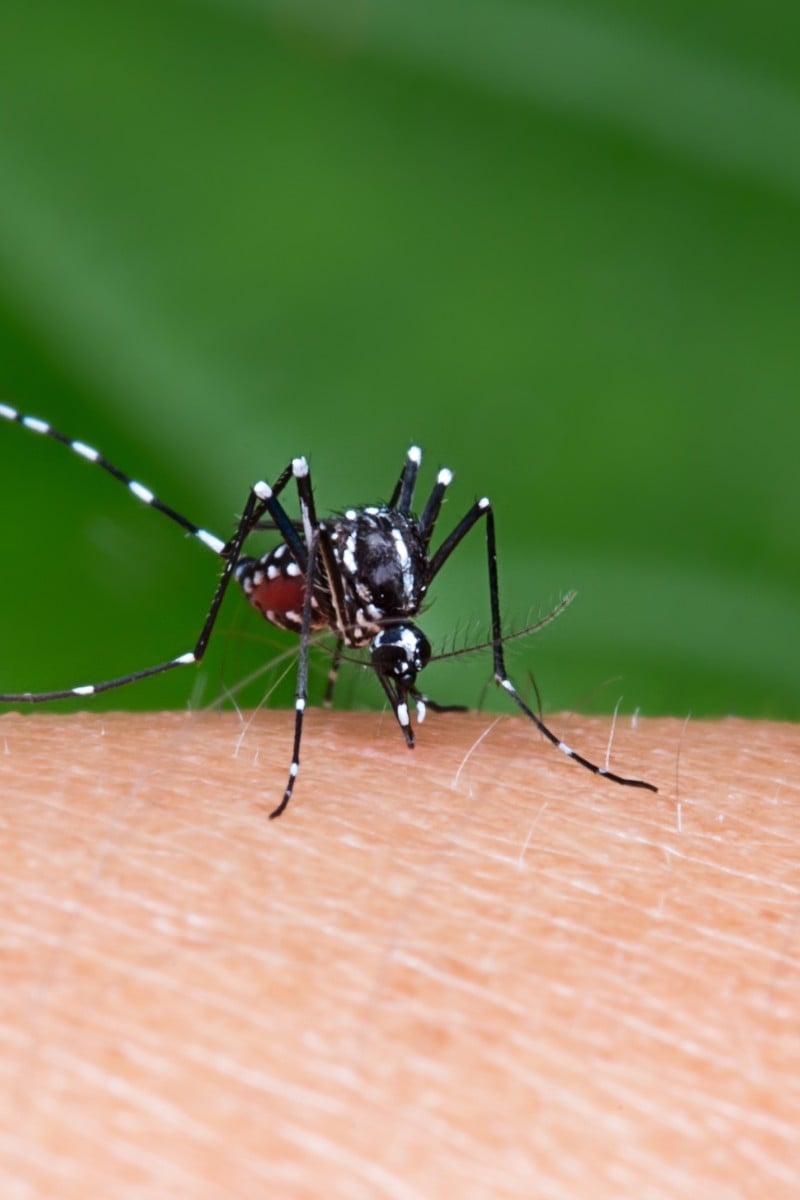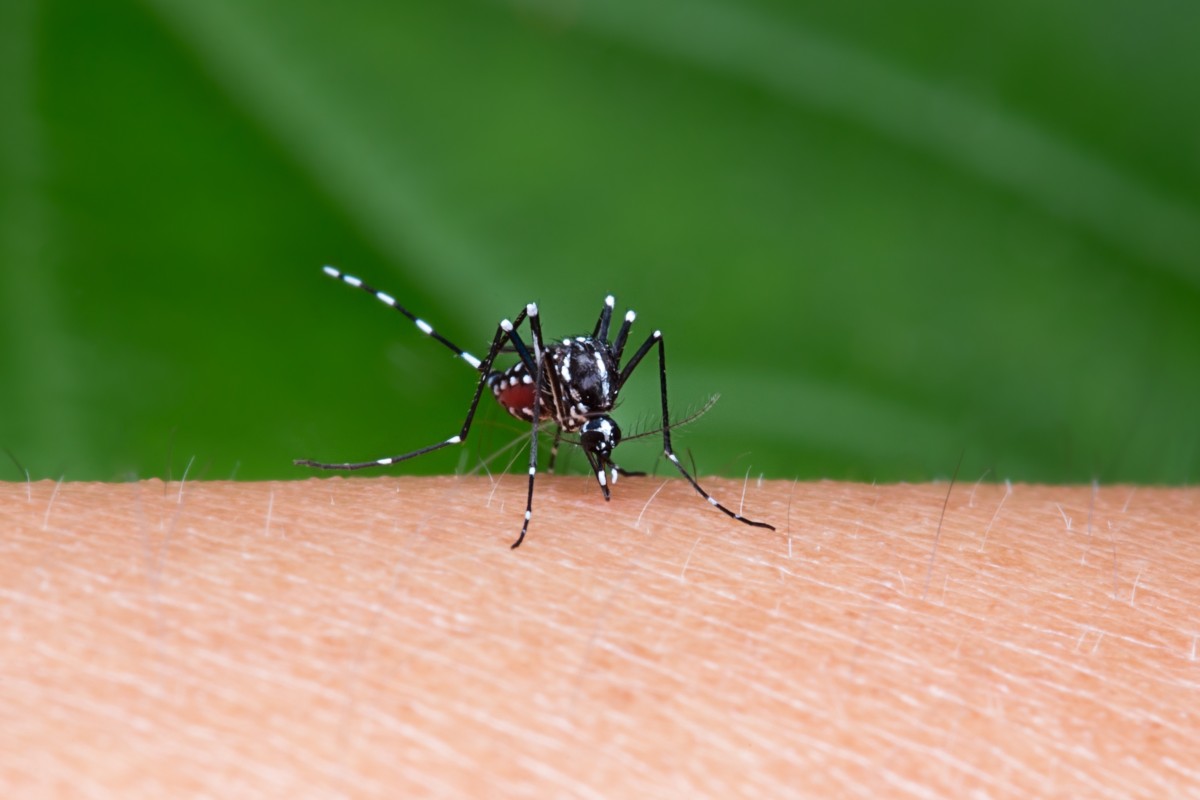
Why do mosquitoes always bite me and not my friends?
An expert at medical entomology says body chemistry is the main factor that determines how attractive you are to the mini bloodsuckers

Some people are more attractive to mosquitoes than others. An expert in inspects explains why, and how these creatures have evolved to evade detection and extermination.
Jonathan Day, a professor of medical entomology at the University of Florida, has been studying mosquitoes and their behaviour since 1985. In three decades, he has come to know how they operate. They identify potential hosts through two main sets of cues, he says – olfactory, by smelling them, and visual.
A person’s body chemistry is the prime factor in whether they will be a mosquito magnet. “That is primarily how much carbon dioxide a person releases,” Day says, whether through the nose, mouth or skin. “People with high metabolic rates release more carbon dioxide and are very attractive to mosquitoes and all biting flies.” Larger people and pregnant women, as examples, exhale more air and carbon dioxide, and are more alluring to them.
Besides carbon dioxide, mosquitoes can sense other secondary chemicals released by humans and vertebrate animals, such as lactic acid, which is constantly produced by the muscles; acetone, another by-product of metabolism; and octanol, which is present in human sweat and breath.
Mosquitoes detect these substances and use them in combination with carbon dioxide to identify potential feeding stations, distinguishing them from other sources of carbon dioxide such as cars, says Day.
While mosquitoes that are active at night tend to rely on scent, aggressive species that hunt during the day use visual cues to find their hosts: colours and motion.
“Mosquitoes have very good eyes,” says Day. In addition to seeing movement, “they use vision to contrast a host against a background. Dark clothing makes people a better visual target than light clothing.”
Once mosquitoes are close to their targets, they use other subtle cues to locate the blood vessels and where to insert their stylets, the parts of their mouths that pierce the skin. “Mosquitoes can sense skin temperature on their legs and mouth parts when walking on a host. Where the blood is close to the surface, it’s warmer,” says Day.
Other factors that determine whether a mosquito will find a host desirable may include blood type – people with O positive blood, and people with higher levels of glucose in their blood, are thought to be more likely targets. Day, though, says these hypotheses are not well-grounded.
Regarding blood types, different research has found contradicting results. “I don’t think that is as critically important as the carbon dioxide levels and I don’t think their sensory organs are subtle enough to distinguish type O from type A,” he says.
While research has not established a causal relationship between blood sugar levels and a host’s attractiveness to mosquitoes, Day explains that children experiencing a sugar rush have higher metabolic rates, produce more carbon dioxide and may become more active, thus indirectly drawing the insects’ attention.
If you find these winged villains hard to kill and avoid, it is because they have become “masters at avoiding being struck”, says Day. They have evolved, changing their behaviour to increase their chance of survival.
Apart from sensing changes in air currents and flying away as people try to strike them, one mosquito type, the Aedes aegypti that transmits dengue and Zika viruses, has ‘learned’ to bite people’s ankles, elbows or back of their necks, areas where they are less likely to be detected or struck.
They have also evolved to minimise contact with a host, for example, by shortening feeding times and entering homes to feed at night instead of during the day.
“For the mosquito’s part, that’s genius,” says Day.
One recent research published in the Journal of Experimental Biology last year used 3D motion analysis to study how mosquitoes take off after feeding. Instead of jumping into the air and flapping their wings, as other insects and birds usually do, they do it in reverse order, reducing the amount of pressure they exert on the skin and avoiding detection. Clever!
Here are a few ways to keep these bloodsuckers at bay:
1. Keep plants
There are a number of plants whose natural fragrances repel insects, including mosquitoes. Not all of them grow well in Hong Kong hot, humid climate. Ones you can keep as a house plant inside your flat include rosemary, catnip, basil and scented geraniums.
2. DIY incense
Mosquito coils are common in Hong Kong, but studies have found that the chemicals they contain may release carcinogenic by-products when burned. Okapi Studio in Kowloon Bay (facebook.com/okapistudiohk/) offers workshops on how to mix different botanical extracts and create natural incense, instead. It also sells ready-made mosquito-repellent incense in the scents of lemongrass and mugwort.
3. Use essential oils
Studies have suggested that lemon eucalyptus essential oil can be as effective in warding off mosquitoes. Create a home-made spray by mixing 25 drops of the oil with 120ml of witch hazel. Shake well before use.
4. Chinese medicine sachet
Disposable mosquito repellent patches, often individually packaged in plastic, can create a lot of waste. For a more environmentally friendly alternative, Chinese medicine practitioner Tsang Kok Chi recommends placing chopped pungent herbal ingredients such as mugwort, lemongrass, cloves, peppermint and patchouli into a small porous cloth bag and carrying it at the waist. The home-made sachet ingredients should be replaced every two weeks.
5. Victoria’s Secret Bombshell perfume (Bonus!)
A New Mexico State University study found a surprisingly useful repellent – the Victoria’s Secret Bombshell perfume. The online perfume encyclopaedia Fragrantica describes it as a “fruity, aromatic and floral fragrance” that “contains notes of purple passion fruit, Shangri-la peony and vanilla orchid.” Its overpowering fragrance is definitely not for everyone, though.
Edited by Doris Wai
You might also like:
Help! There's a snake in my house: what to do and how to keep them away from your home